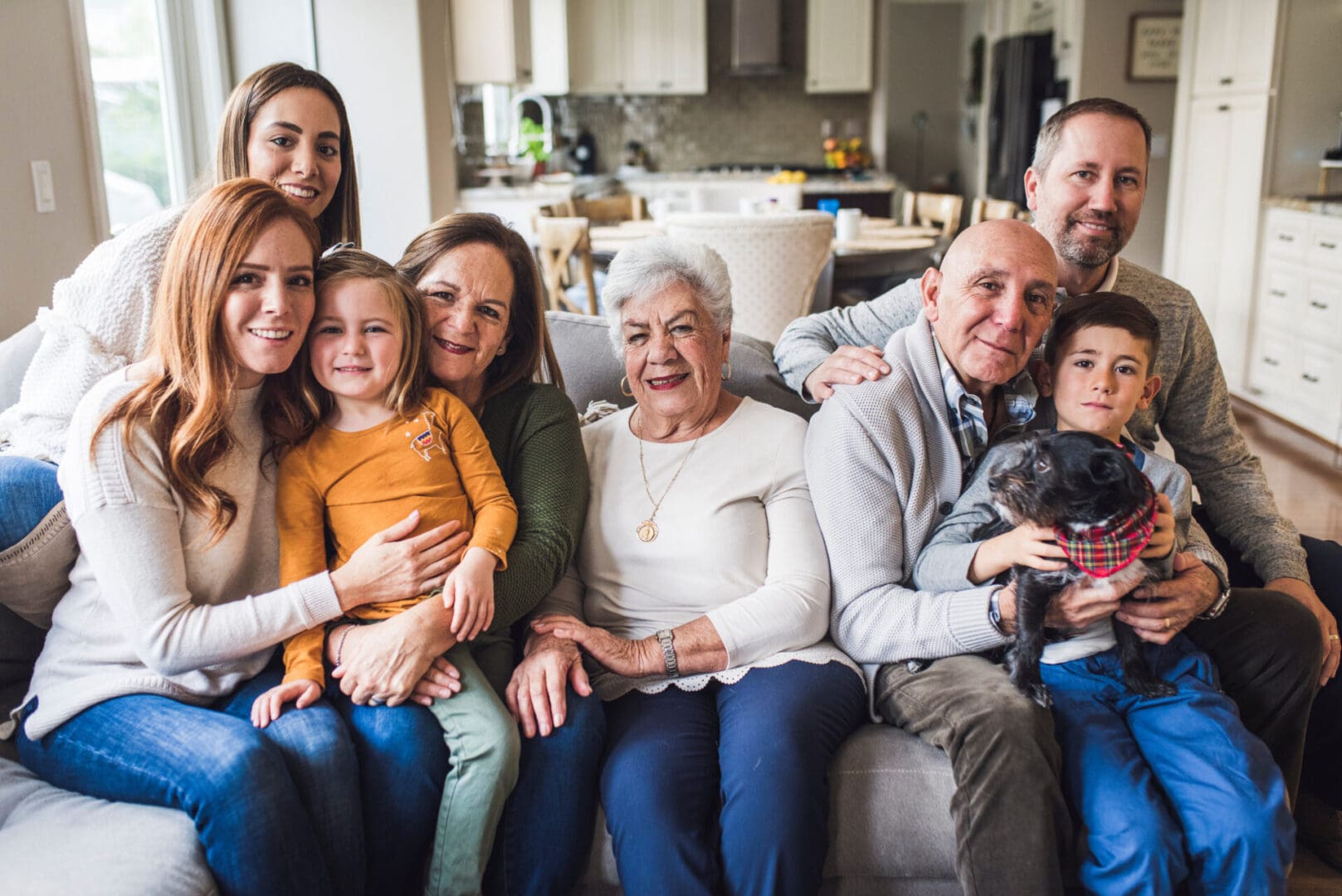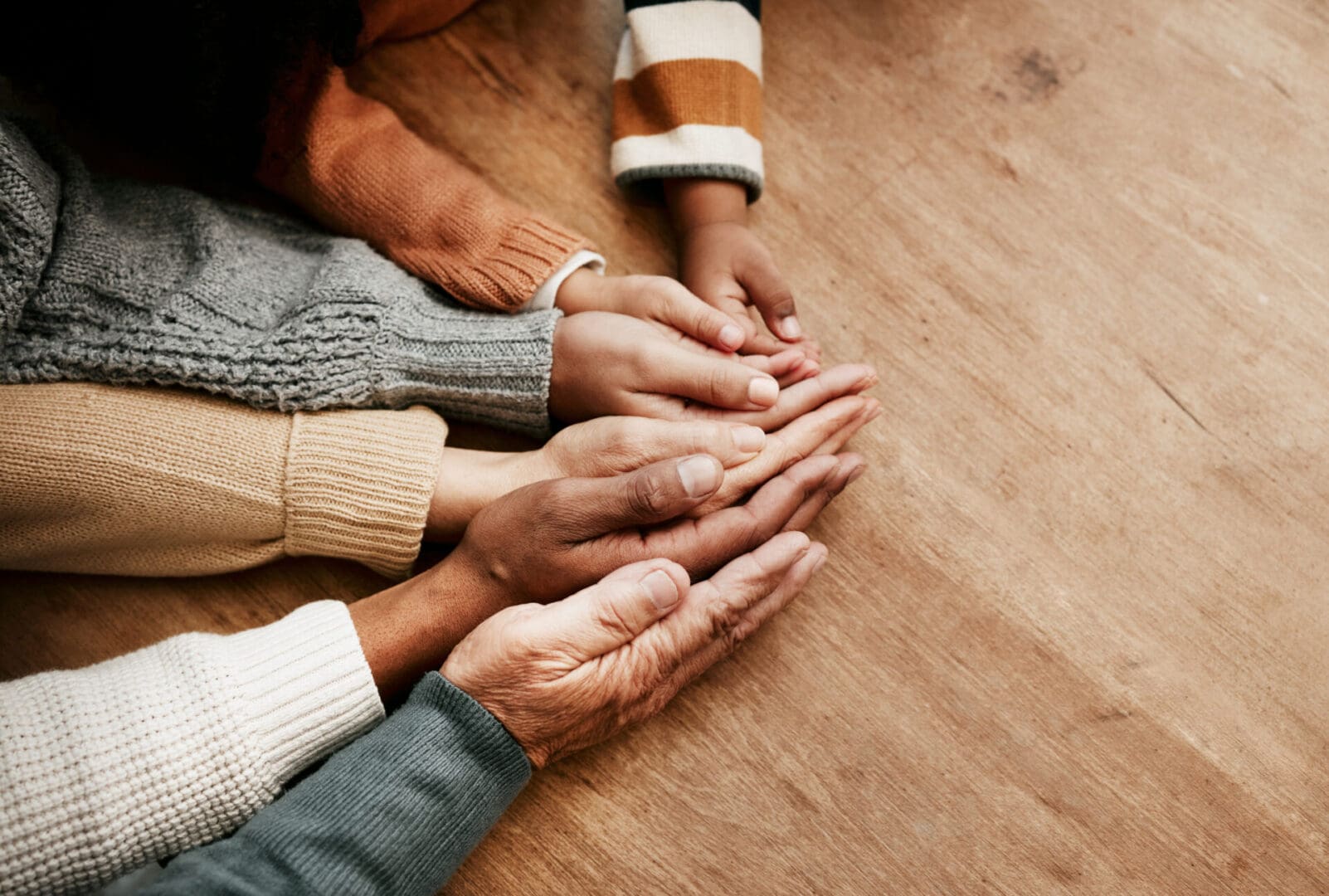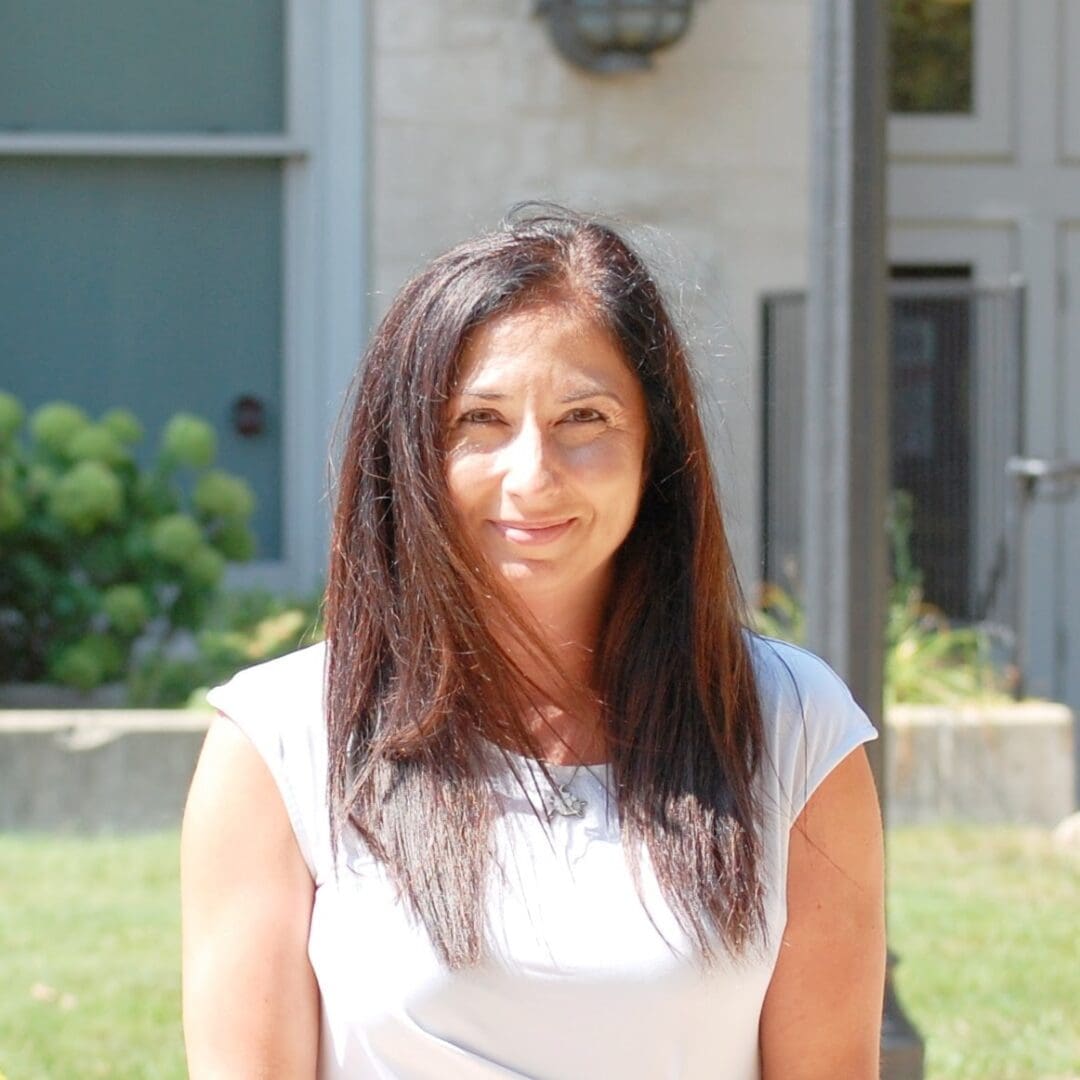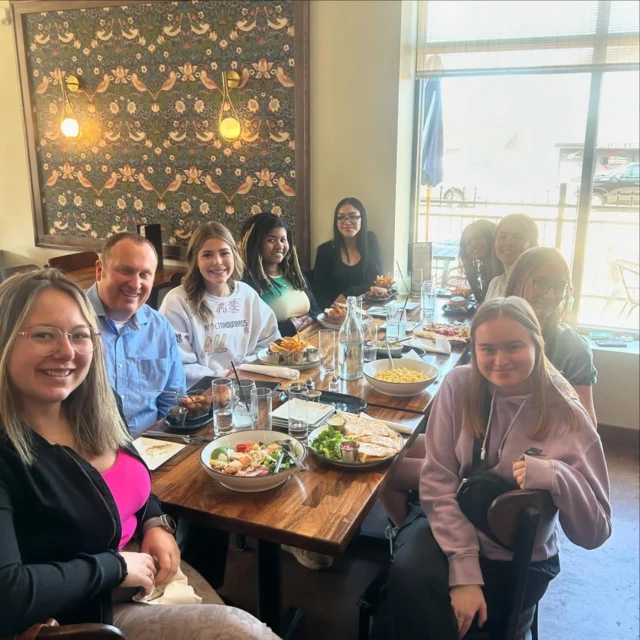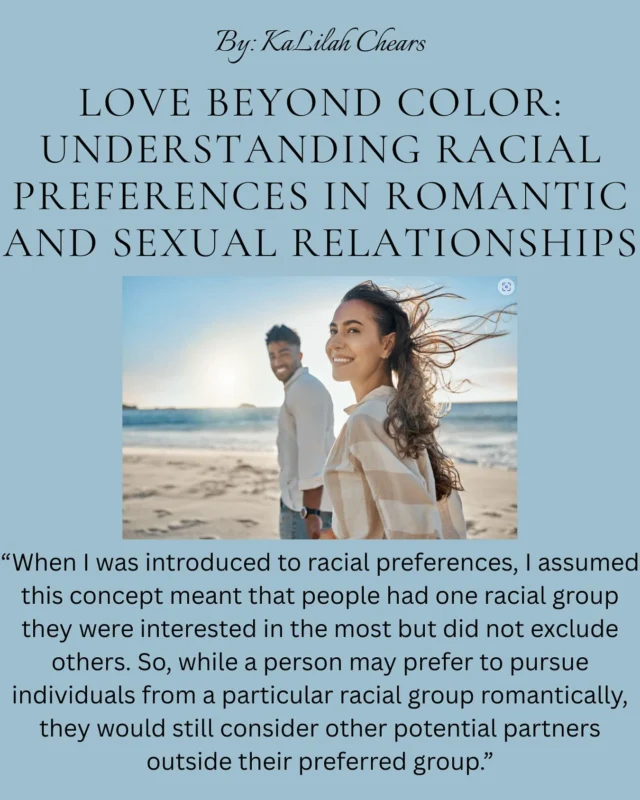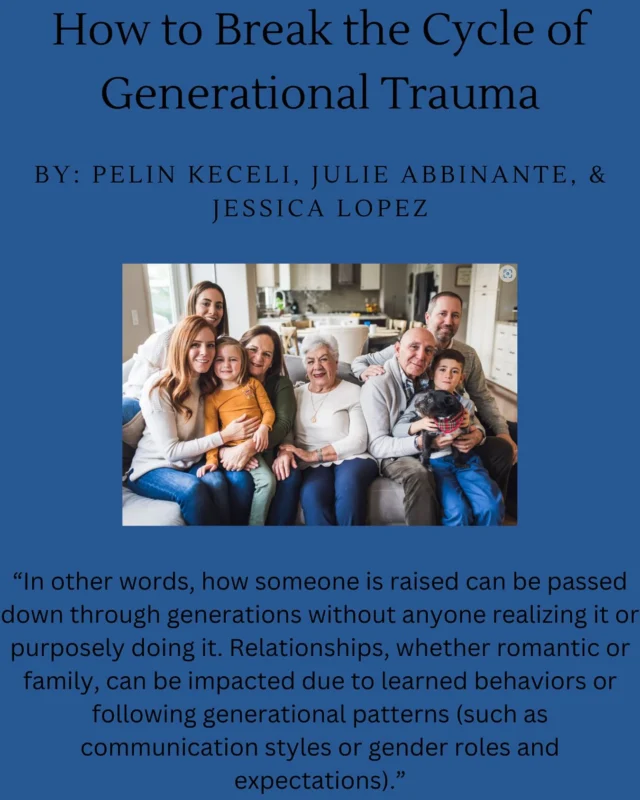Trauma can have a substantial impact not only on individuals, but on families through the generations. I (Julie) often think about the difference it would have made in my childhood had my grandfather worked out his trauma after World War II (WWII). I have a vivid memory while visiting my grandparents so many years ago that still sticks with me. My grandfather, who fought with General Patton in WWII, suffered severe trauma upon his return home. One could suggest he may have suffered from post-traumatic stress disorder (PTSD) and it was expressed that he also exhibited depressive symptoms. He walked in his living room one day as my sister and I were watching our new HBO obsession at the time, Band of Brothers. He watched with us for a short time while people were dying on the front lines in this WWII series and said, “too many memories,” and walked out of the room. He never spoke of the war to us. In fact, his generation lived through the depression and two world wars. These events impacted millions of individuals, couples, and families that fostered unresolved generational trauma that can be felt by family members in future generations.
“In the United States, psychological disorders relating from combat experiences were misunderstood and improperly treated for decades surrounding the two World Wars.” (Lavelle, S. 2016). My grandfather was never treated for PTSD or any other mental health disorder he may have suffered from WWII. In those days, the societal norm was to deal with it however you needed to on your own. This set a dangerous precedent for how future generations were raised.
Social isolation, emotional numbing and hyperarousal are all symptoms of PTSD and this in turn affected my grandfather’s parenting style. Love and affection were a rarity at their house. The cold and avoidant nature of the family dynamic was then passed down to my father as he raised my sister and me. The cycle was broken with my sister and I as we are now raising our boys. Love and affection in our households are a daily occurrence. If trauma is not dealt with, the “trauma cycle” will continue for generations. What is generational trauma and how does it affect families? How can everyday interactions among families shape your future relationships?
Do you remember watching your parent’s interactions when you were younger? Have you noticed how other families react to things different than yours? Perhaps you have noticed that your parents and other family relationships have affected how you approach your current relationships. If so, you may want to learn more about the multigenerational transmission process, which describes how we consciously and unconsciously pass down family dynamics to the next generation (The Bowen Center for the Study of the Family, 2024).
In other words, how someone is raised can be passed down through generations without anyone realizing it or purposely doing it. Relationships, whether romantic or family, can be impacted due to learned behaviors or following generational patterns (such as communication styles or gender roles and expectations). When experiencing adversity in your new family or relationship, you may wonder what you have learned from your upbringing. Throughout this post, we will discuss the multigenerational transmission process in-depth, how it affects us, and how we can break the cycle of unhealthy habits for upcoming generations to build more resilient families and relationships.

Bowen’s Family Systems Theory
Before I (Pelin) get into the multigenerational transmission process, I want to provide a brief overview of Bowen’s Family Systems Theory, a theory of human behavior that views the family as an emotional unit (The Bowen Center for the Study of the Family, 2024). Think of how when one person in your family is feeling an emotion (stressed or sad; happy or excited), it tends to impact the feelings of the other family members. As an emotional unit, families develop interactional patterns in handling stress and conflict; depending on the unit, this may be functional or dysfunctional.
Bowen’s Theory has a total of 8 parts, which include:
- Triangles
- Differentiation of Self
- Nuclear Family Emotional Process
- Family Projection Process
- Multigenerational Transmission Process
- Emotional Cutoff
- Sibling Position
- Societal Emotional Process
For this blog, I will focus on the Multigenerational Transmission Process and how it can result in dysfunctional family patterns. The multigenerational transmission process highlights how behavior patterns, emotional reactivity, and relationship dynamics are passed down through generations (Cohen, 2023). For example, suppose your grandfather had high emotional reactivity in stressful times, resulting in a short temper, and your father watched how your grandfather reacted. In that case, your father will likely also have a short temper because that is what he was taught by example. Then, you likely witnessed your father’s short temper in stressful times, and your son watched you have a short temper. He most likely will inherit that behavior of having a short temper, which started from your grandfather.
Both the intensity and characteristics of the emotional patterns in one generation influence the intensity and characteristics of the emotional patterns in the next; it is assumed that relational patterns impacting today’s generation are the same patterns tracing back hundreds and even thousands of years ago (Kerr & Bowen, 1988, p. 248). This process through generations can be detrimental to many future generations, and it is essential to break the cycle and incorporate healthier coping mechanisms and behavioral responses (Cohen, 2023).
Differentiation of Self
A consequence of the multigenerational transmission process is that an individual’s level of differentiation of self is primarily determined by their parent’s degree of differentiation of self (Kerr & Bowen, 1988, p. 244). The differentiation of self refers to the individual’s ability to maintain a sense of self while remaining emotionally connected to others, primarily in family relationships (The Bowen Center for the Study of the Family, 2023). A highly differentiated family would include members who appear close while maintaining individuality. This might look like a family encouraging each other to express emotions or opinions without rejection. Each family member should be open to discussions without forcing their preferences and be free to discuss conflicts without the fear of being emotionally detached. The family remains emotionally attached while each member maintains their individuality. This pattern learned in the family will manifest in friendships and romantic relationships and then be taught to the next generation of children.
Individuals with a poor differentiation level are subject to fusion with others or emotional cutoff in an extreme and emotional attempt to regulate interpersonal distance (Jozefczyk, A, 2022). I can see this within my own family and myself. Whenever my mom and I argued, she distanced herself, giving me the silent treatment. I always wondered why she did that when I was younger. Once I got older, I learned that my grandmother had done the same to her throughout her childhood. Even now, I have realized that I tend to distance myself and not speak when I argue with someone. I realized that I needed to change and learned this was unhealthy for my platonic, romantic, and family relationships. This is an example of an emotional cutoff that was learned generationally. In other families, emotional cutoff can appear more extreme, like when an individual permanently distances themselves from their family of origin (not always wrong, depending on circumstances).
A higher level of differentiation protects against transmitting negative relational behaviors generationally. A more highly differentiated individual is likely more emotionally independent, allowing them to cognitively process negative family behaviors without giving in to these patterns. This can help the individual recognize that they need to develop healthy coping mechanisms and improve their communication to be more direct while maintaining balanced emotional responses.
Generational Trauma
What you see while you are growing up from your parents is consciously teaching, unintentionally learning, and automatically programming emotional reactions and behaviors (The Bowen Center for the Study of The Family, 2023). You learn so much from your parents, even if it was not intentional. This can, at times, cause generational trauma, which refers to passing down traumatic experiences from one generation to another, for example, childhood abuse and maltreatment, poverty, and domestic violence (Chapple, 2023). The impacts of generational trauma can affect your relationships because you may be transmitting your unresolved trauma to your children or spouse, which is now restarting the cycle of trauma.
We have already mentioned how behavioral patterns such as emotional cut-off can be learned generationally, and they do not stop there. We also learn emotional patterns generationally, which may include how we respond in certain situations, like when we are scared or overwhelmed. These patterns can impact our relationships and the way we raise our children. With the parents at the top of the family hierarchy, how they interact is crucial to the functioning of the family, with positive relationship quality reducing children’s internalization and externalization of behaviors (Fitzgerald et al., 2020). In other words, how our parents interact with each other and interact with us can significantly impact our emotional and behavioral patterns. Our parents may have experienced trauma in their childhood, such as physical or emotional abuse or parental domestic violence. This may cause them to repeat these behaviors because that is what they learned a relationship looked like. If this sounds like your family, do not worry; the cycle can be broken, although it takes some work.
Breaking the Cycle
It can be difficult to make meaning of our traumatic experiences, but this is a vital component of understanding our lived experiences to navigate transformation. Through meaning-making, we can develop an understanding of our ability to move forward and make the necessary changes for our families to live healthy lives together.
Developing protective factors can help decrease parental stress from experiencing adversity and help break the cycle of intergenerational trauma (Chokshi et al., 2023). The Healthy Generations program (2024) suggests the following:
- Healthy Habits — Sleeping habits, exercise, and balanced eating are the first steps to ensuring healthy family habits.
- Supportive Relationships —Both parents and children should have supportive relationships within and outside the family; friends, teachers, and counselors can provide outside support just by being present in our lives.
- Mental Health Care — Family therapists can help parents validate their experiences, process emotions, develop new coping habits, and recognize patterns that may have been repeated generationally.
- Parenting Education Support — New parents often need extra help learning healthy living skills for themselves and their families. Ask your pediatrician or local health department for resources near you.
We hope that you now have an understanding of how behaviors and patterns are easily repeated generationally, which can be negative or positive. By making differentiation moves, we can improve our communication styles and how we respond in emotionally driven situations. Mentioned above are a few protective factors that can assist in breaking the cycle of generational trauma transmission. Although the cycle may not have originated with you, it is within your power to bring it to an end. When we are willing to acknowledge the need for self-change and improving relationships, we are already embarking toward resilience and healthy relationship development.
The bright future of our children, grandchildren, and future generations depends on our ability to empathize with our parents and grandparents and realize they were a victim of their own circumstances. You can find ways to create healing, restoration, and even forgiveness in your family relationships. The importance we place on the mental health of future generations is dependent upon our ability to break the cycle…or as Khaleesi, the mother of dragons in the epic HBO series Game of Thrones so eloquently stated, “I’m here to break the wheel.”
References
- Bowen, M. & Kerr, M. (2022). Family evaluation: An approach based on Bowen theory. W.W. Norton & Company.
- Chapple, R. (2023, February 2). What Is Generational Trauma? Symptoms & More. Talkspace.
- Cohen, I. S. (2023, November 13). Understanding Bowen Family Systems Theory. Psychology Today
- Children’s National Health System. (2024). Healthy generations program. Children’s National. https://childrensnational.org/get-care/departments/healthy-generations-program
- Chokshi, B., Pukatch, C., Ramsey, N., Dzienny, A., & Smiley, Y. (2023). The generational trauma card: A tool to educate on intergenerational trauma transmission. Journal of Loss and Trauma, 28(5), 464-471.
- Fitzgerald, M., London-Johnson, A., & Gallus, K. (2020). Intergenerational transmission of trauma and family systems theory: An empirical investigation. Journal of Family Therapy, 42, 406-424.
- Jozefczyk, A. (2022). Multigenerational transmission of differentiation of self- Toward a more in-depth understanding of Bowen’s theory concept. Journal of Marital and Family Therapy, 49, 634-653.
- Lavallee, S. (2016, April 19). Enduring casualties of war: Delayed treatment of combat stress in World War II veterans. Fairmount Folio: Journal of History.
Discover more from Decide To Commit
Subscribe to get the latest posts sent to your email.
